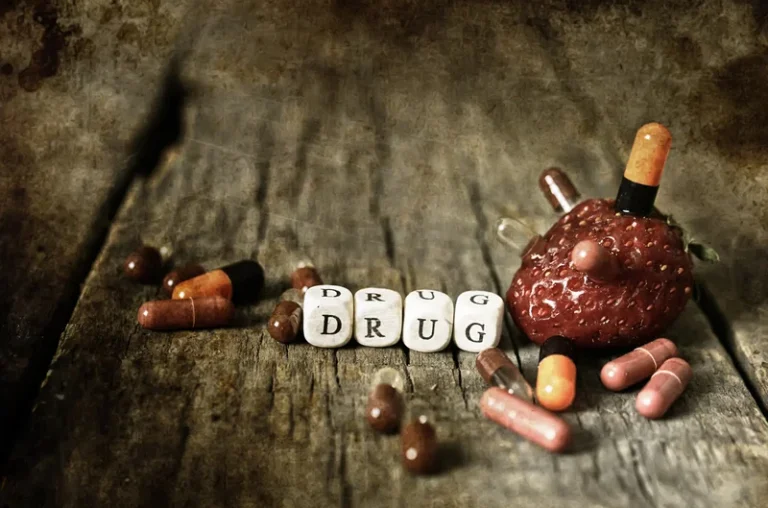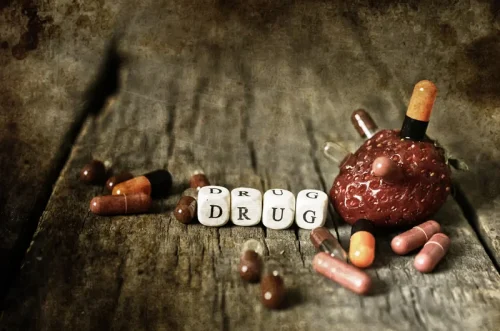وبلاگ
10 Reasons to Go to Drug or Alcohol Rehab

Each treatment center typically has a list of things to bring and to leave at home, so you’ll want to make sure you have this list handy as you’re packing. However, there are some essentials you’ll find on most facilities’ packing lists. You may be able to prevent heart palpitations or reduce them by avoiding triggers and changing your behaviors. If you have heart disease or an arrhythmia you may need medication, a procedure or a medical device to manage heart palpitations and other symptoms. Still, there are things you can do to help your heartbeat return to normal more quickly. These can be especially helpful if heart palpitations are caused by anxiety or stress.
- American Addiction Centers (AAC) can guide you through the entire process, from finding a suitable treatment program to answering questions and preparing you to enter rehab.
- Developing self-esteem is crucial, as it can profoundly influence the recovery journey and overall well-being.
- Treatment providers are available 24/7 to answer your questions about rehab, whether it’s for you or a loved one.
Inpatient Rehab in a Nutshell
It can be troubling if you feel your heart start to flutter, skip or race. But heart palpitations are common, temporary and usually not something to worry about. Various studies and scientists use different terminology to describe this phenomenon. Some use “spontaneous remission” while others use “spontaneous recovery.” There’s also debate over what constitutes treatment. Some studies consider 12-Step programs treatment while others do not. Furthermore, researchers don’t follow up with study participants after the same amount of time.

What Are My Treatment Options After a Relapse?

Luckily, there are plenty of other options for treatment when a relapse occurs. Outpatient treatment programs are more affordable and can treat an AUD with little impact on daily life. Patients can return to their homes each night after treatment; this is ideal for those with families or jobs that they are unable to leave for rehabilitation. For many, continuing care after treatment can help lessen the chance of relapse and the need for more rehabilitation. Call now to connect with a treatment provider and start your recovery journey. Whether you need outpatient treatment, inpatient treatment, sober living, or support groups, we have treatment options to meet you where you are and get you where you want to go.

You find yourself considering whether or not a return to rehab is a good idea.
If you’re seeking addiction treatment for yourself or a loved one, The Recovery Village Cherry Hill at Cooper is here to help. Our facility is conveniently located within the heart of New Jersey, under 20 minutes from Philadelphia. Autonomy—acting independently and making choices aligned with one’s own needs and goals—can be diminished by addiction. Rehab programs aim to restore this sense of control, which is essential for long-term recovery and well-being. By applying a similar in-depth analysis, rehab facilities can tailor interventions to individual needs, ensuring that each person receives the specific psychological and emotional support necessary to heal.
Can American Addiction Centers Help Me?
- More importantly, getting help could mean the difference between life and death, and your life is far more important than what others think of you.
- Given these daunting statistics, newly recovering addicts are encouraged to protect their sobriety by utilizing aftercare support services and 12-step programs.
- You can join an alumni group or aftercare service that allows you to work with counselors and a sponsor and exposes you to others who are also in recovery.
- Understanding addiction will not only help you to be empathetic, but allows you to understand the facts so you can be better equipped to handle the conversation.
To determine if going back to rehab is necessary, it’s important to understand the definition of relapse, the qualities of lasting treatment, and the individual’s current situation. You may wonder if there is a difference between a slip, or a “lapse,” and a true relapse. A lapse is a temporary, often one-time, return to prior drug-use behavior, whereas a relapse is a “full-blown” return to drug or alcohol use after an attempt to quit.
A person might be ambivalent about recovery, seeking treatment not for themselves but for external reasons. Take the first step toward addiction treatment by contacting us today. Other factors to consider while preparing for rehab are financial and legal obligations. The amount of time you spend in treatment can vary, and utility bills, car notes, rent, the mortgage, and tuition won’t stop while you’re gone. But if they’re bothersome, or you have symptoms of dizziness, chest pain or shortness of breath, you should be seen by your primary care doctor.
Should You Go Back to Rehab?
If necessary, they’ll refer you to a specialist such as a cardiologist for advanced care. You may have heart palpitations when you’re experiencing depression, anxiety or stress. As part of a fight-or-flight response, your heart responds to stress and other strong emotions by releasing large amounts of adrenaline, cortisol and other chemicals into your body. These chemicals increase your blood pressure, heart rate and can cause feelings of heart palpitations. Inquire about the qualifications of staff members as well as the specifics of the therapies offered prior to committing to a particular program.
Reasons To Go To Drug Rehab
Addiction can be a lifelong struggle, so an enduring sense of determination and willingness to learn and adapt are essential to achieving long-term recovery. Outside pressures—from family members, friends, co-workers, or even via legal issues or court-ordered rehab mandates—can also put people at risk for post-rehab relapse. A person may enter rehab while still in the pre-contemplation stage and simply not be committed to the process, potentially increasing the risk of relapse. Lack of commitment to sobriety can also be a major factor in relapse.
- However, even if you don’t have support at home, other options are available, such as hiring professional caregivers, using long-term pet sitters, taking a leave of absence from school, etc.
- If you have loved ones willing to stand by your side through your journey, take all the support and encouragement you can get.
- Our facility is conveniently located within the heart of New Jersey, under 20 minutes from Philadelphia.
- No matter the case, the important step here is that these people are getting into a rehab program.
- For those battling substance abuse, going to rehab means leaving the comforts of home, and leaving the comforts of drugs and alcohol, to get sober.
How to Encourage Someone to Go to Rehab (The Dos and Don’ts)

Whether or not a single use of a substance qualifies as a relapse varies from person to person. For others, even a small slip can bring on intense feelings of failure, including guilt and shame. Professional support and guidance for dealing with those feelings are an important part of avoiding a relapse. If you feel your motivation waning as time passes, it might be time to return to rehab. You don’t need to feel a high sense of motivation every single day, but if you’ve noticed a decline in motivation over time, rehab can help. Many different philosophies about recovery and relapse exist, often with opposing tenets, which can leave you confused about which is correct.

Whether or not you relapse is closely tied to your sense of self-efficacy. Individuals considering going back to rehab need to assess their own current situation. Ultimately, one must determine if they can afford to go back as rehabilitation can be costly and time-consuming. There are other treatment options available for those who going back to rehab can’t afford rehab or cannot be removed from their daily life due to current responsibilities or previous commitments. Reach out to American Addiction Centers (AAC) at for a free and confidential call. Available 24/7, admissions navigators can not only listen to your story but also answer questions about treatment and assist in locating a facility to meet your needs.
